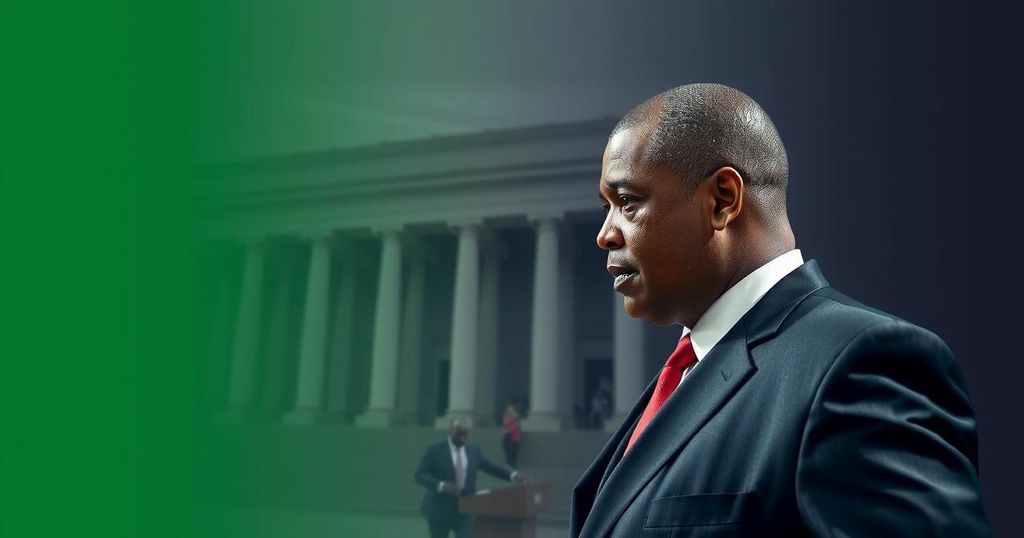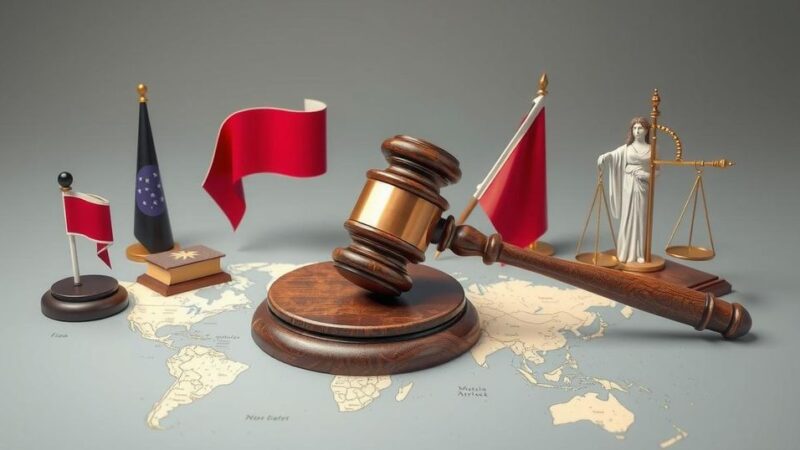The Supreme Court of Equatorial Guinea acquitted Balthazar Engonga of charges related to an intimate video scandal, citing lack of evidence and confirmed consent of all parties involved. Mr. Engonga plans to take legal action against those who leaked the videos, which have revealed striking truths about marital relationships. The First Lady and Prime Minister have called for enhanced protections for women and privacy in response to the scandal’s fallout.
In a significant legal development, the Supreme Court of Equatorial Guinea has cleared Balthazar Engonga, the former Director General of the National Financial Investigation Agency (ANIF), of all charges related to an intimate video scandal. The court cited insufficient evidence and confirmed that the individuals featured in the videos were consenting adults. Medical examinations further established that Mr. Engonga had not transmitted any sexually transmitted diseases to any parties involved, reinforcing his claims of innocence.
In a twist, numerous married men whose spouses appeared in the videos have commended Mr. Engonga for shedding light on issues within their marriages, leading some to pursue divorces. The scandal originally surfaced due to a series of tapes that circulated online, reportedly showcasing Engonga’s affairs with several notable women, including the wife of the vice president.
Following this revelation, Mr. Engonga announced intentions to initiate legal proceedings against those who released the videos, denouncing it as a grave invasion of his privacy that brought considerable distress to his family. Prior to his arrest on allegations of embezzling state funds, Mr. Engonga took a firm stance against financial crimes within the country.
After being incarcerated in the infamous Black Beach prison in Malabo, where numerous claims of mistreatment against political adversaries have arisen, intimate videos of Mr. Engonga began to circulate online. Subsequently, the Equatorial Guinean government formalized his dismissal through Decree No. 118/2024, which cited personal conduct and misconduct in public office.
The First Lady of Equatorial Guinea has emphasized the need for government action to safeguard women’s dignity in the digital landscape, asserting that despite advancements in gender equality, more proactive measures are essential. Prime Minister Osa Nsue acknowledged the negative ramifications of the incident on the country’s image and gender equity efforts, advocating for the reinforcement of privacy legislation in light of the evolving digital environment.
In response to the controversy, the Vice President has directed relevant ministries to act against the dissemination of the videos, insisting that families should not endure the fallout of these breaches of privacy. Local frustrations have emerged over new restrictions on multimedia sharing, with citizens compelled to make use of Wi-Fi networks. Furthermore, assurances were made by the chief prosecutor that appropriate legal action would follow if any medical evidence arose indicating public health endangerment due to sexually transmitted diseases.
The sex scandal involving Balthazar Engonga has highlighted significant issues surrounding privacy, consent, and the impact of digital media in Equatorial Guinea. The case not only involved allegations of personal indiscretions and embezzlement but also raised broader concerns about gender equality and the protection of individuals’ rights in the digital age. With growing awareness of the ramifications of social media and private content distribution, the scandal has prompted calls for legislative reform and a more proactive stance on protecting citizens’ privacy.
In conclusion, the Supreme Court’s acquittal of Balthazar Engonga underscores the complexities of privacy and consent within the realm of digital media. The incident has sparked discussions about the protection of personal rights, especially concerning women in Equatorial Guinea. As officials seek to legislate against such occurrences, it is essential to foster a respectful environment while addressing the broader implications for public morality and familial integrity within society.
Original Source: www.osundefender.com







